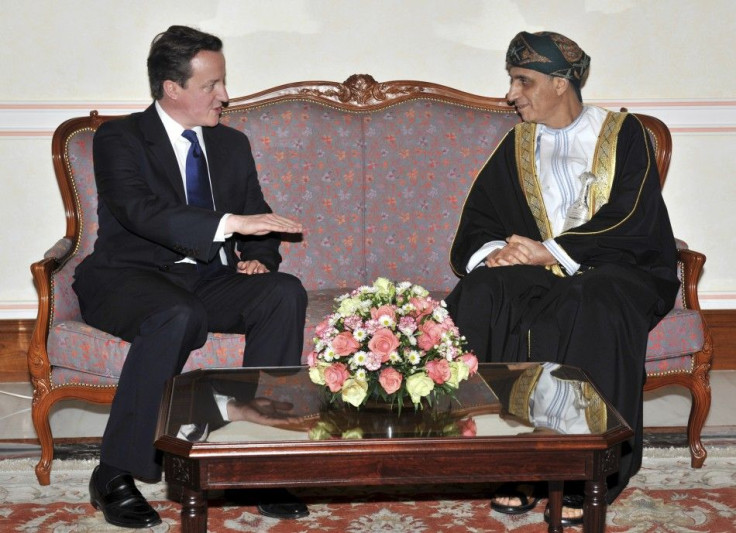Gulf monarchs on the back foot: Oman offers 50,000 jobs to citizens

The 'benevolent Arab monarchs' of the Middle East are hurriedly loosening their purse strings as long-simmering disgruntlement over the lack of political reform and equitable economic opportunities threaten to destabilize long-entrenched regimes in the region.
On Sunday, the Sultanate of Oman, the least wealthy among the oil producing Gulf Cooperation Council (GCC) countries, offered more jobs to its citizens after protesters demanding political reform and jobs clashed with police.
The state mouthpiece Oman News Agency (ONA) said on Sunday Sultan Qaboos bin Said has ordered the hiring of 50,000 citizens. The state-run media did not give further details. May Allah protect His Majesty the Sultan and grant him a long life and to remain always an inspiring leader and kind-hearted father, the mouthpiece said.
The Times of Oman also reported that the Sultan has ordered the payment of 150 Omani rials
(about $390) per month for each job seeker who is registered with the Manpower Ministry till he/she finds a job.
The move comes after Bahraini authorities backtracked from the offensive posture adopted initially against protesters and offered to hold talks and pull back armored vehicles from the streets, besides offering sops to the Shiite protesters.
Like most other GCC countries, Oman has faced serious internal political dissension in the past but a combination of the 'oil wealth model' of the welfare state and the total lack of political freedom has ensured that dissent never rears its ugly head.
However, the typical Middle Eastern political systems have long been facing serious tailwinds ever since the spectacular success of popular uprisings in Egypt and Tunisia and the daring moves of protesters in Libya and Bahrain.
The pre-emptive move by the Omani monarch points to the serious challenge to political balance in the region where the gloss of overall wealth often brushes under the carpet serious inequities in the system, as well as extreme suffocation of political activities.
The weekend clashes of the protesters with the police in the industrial town of Sohar have left at least two people dead. Violence of this order in the tightly controlled political system of a GCC country would have been unimaginable if it had not been preceded by the spectacles of dissent and violence in Egypt, Libya and Bahrain.
Sultan Qaboos has also revamped his ministry in the wake of protests in towns like Sohar and far-flung Salalah which have effectively questioned his four-decade rule of the vast Persian gulf kingdom.
© Copyright IBTimes 2024. All rights reserved.





















